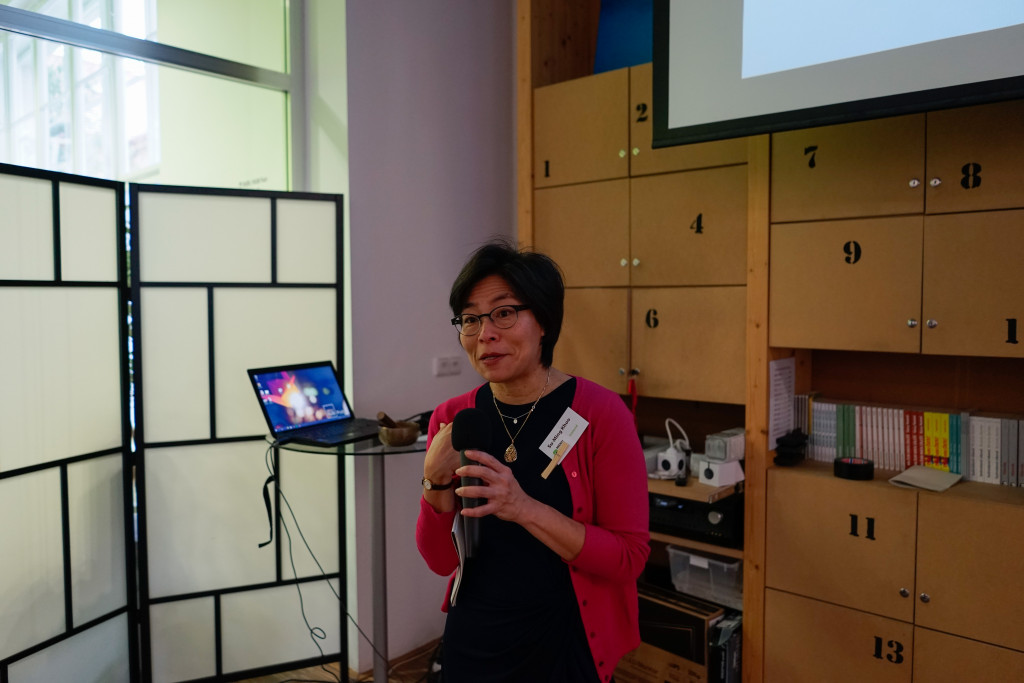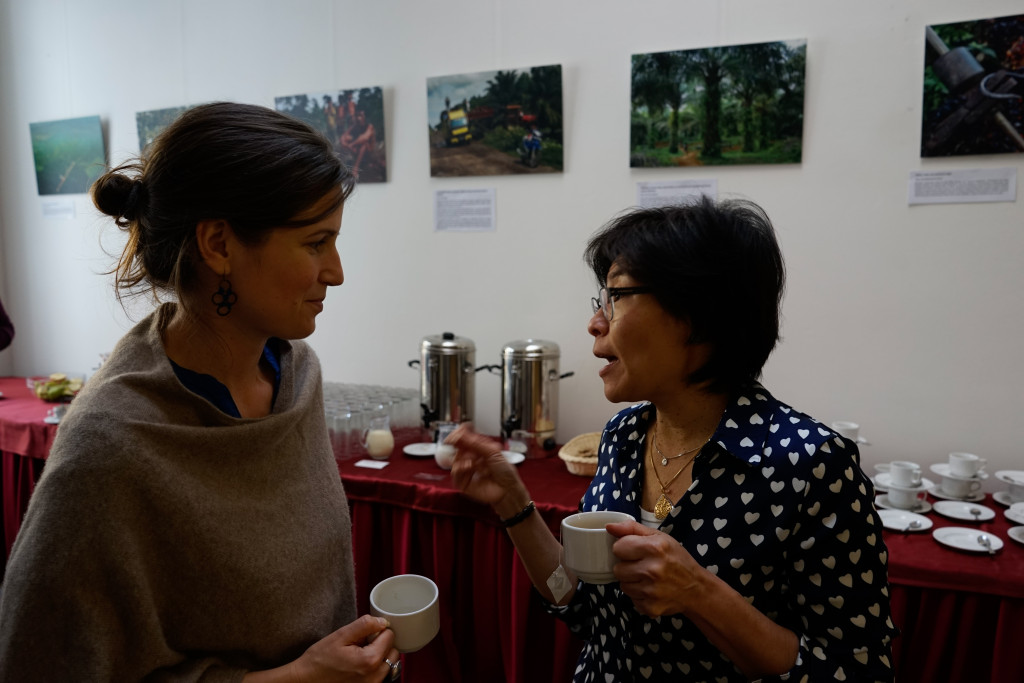We bring you an interview with Su-Ming Khoo, a lecturer at the National University of Ireland’s School of Political Science and Sociology who participated in the International Forum Menu for Change. In her research she focuses, for example, on human rights, alternative economics, consumer activism and sustainable development.
The video recording of the interview can be found at the end of the article.
Here at the Forum we speak about Menu for Change. What does it mean for you and how is it connected with your work?
I was really pleased to be able to participate in the Menu for Change forum. It gave me an opportunity to bring together a few different areas of my work. I’m involved in sustainability, research and teaching. I’m interested in ideas about alternatives to sustainable development, ecological impacts and what we can do about the narrowing space for humanity that we have on our planet. It allows me to do this through the very accessible and easy to understand idea of food while connecting these different complex concerns into a single set of questions and relationships around the food system.
Climate change is having a major impact on agriculture. How should we adjust and improve it?
The world is now facing critical challenges in a number of different areas that define the safe operating space for humanity. Agriculture is the key area in which we need to change the way we produce and the way we consume and relate to each other through agriculture in order to stay within the safe zone of climate stability. Under the new Paris Agreement we have international commitments to contain and reduce the level of emissions of greenhouse gases such as methane. We can also use agriculture as a way to address some key challenges such as chemical pollution and securing the food supply in a way that can still develop the economy in a more inclusive way.

Su-ming Khoo during her lecture.
You are writing and lecturing on the right to food. What does it mean?
The right to food is regarded as one of the first immediate action areas for applied economic, social and cultural rights. This means that it is one of the first areas of attention we should address when we want to think about human rights becoming real through people’s economic circumstances. The right to food is a very basic and fundamental right that people can easily understand.
Is this right threatened by climate change?
Climate change affects the availability of food, how much food and what type of food can be grown by what kinds of people. It also influences the availability of food. Just because food is there doesn’t mean that people can physically or economically access that food. So climate change hugely affects these two criteria that we use in the basic approach to this right. It also affects whether food is adequate or not, because it impacts what kinds of food can be grown and who can access those kinds of healthy and nutritious foods. So the right to food gives us a framework for thinking about food that puts adequate nutrition at the center of our right and takes away the interest only in producing the food and looking at why people need food and why it is their right. A last criterion for the basic approach to the right is looking at the sustainability of production.
The United Nations Food and Agriculture Organization (FAO) recently published a report that says that by 2050 there will be more people than today threatened by climate change if we don’t change our agricultural practices. What kind of change does the world need?
This is a very important question. The world needs a fundamental change. We must abandon thinking only about agricultural production and start thinking about a sustainable food system that ensures that everybody has an adequate supply of food and access to food that is produced in a sustainable way. The new Food, Agriculture and Food Security report by the FAO brings climate change into clear focus together with agricultural production and food security to think about the whole problem of the food system together with the aim of creating proposals and transforming our food system in a way that we can stay in the safe planetary operating space for humanity.
What other environmental threats are we facing today?
For example, agricultural pollution of our water systems with nitrogen and phosphorus, chemical pollution in terms of persistent organic pollutants that are highly toxic, and also increasing concern about glyphosate and pesticide pollution, which may have a long-term impact on biodiversity. Biodiversity is in fact one of the key problems our planet is facing today. We are losing key elements of our biodiversity; we are very worried about bees and pollinators at the moment because they are dying in excessive numbers and we are afraid that if these particular species die out they will not be able to provide essential ecosystem services that we rely on to produce our food and vegetables.

Su-Ming Khoo discussing with Tereza Čajková, project coordinator of the Menu for Change project.
How can our personal menu be changed in western countries?
That’s the most important question – what can we do for change. It would be about supporting agriculture that is more intensive in knowledge and labor and less intensive in carbon emissions and chemicals; more local food, local producers, small-scale producers and shortening the chain of processing, transport and packaging that goes into our food. So eating locally is a very useful thing for consumers and it is necessary to restore a relationship between consumers and producers that will guarantee farmers reasonable livelihoods and protect and promote the fundamental environmental elements they need to sustain their livelihoods such as healthy soil, biodiversity and climate stability.












